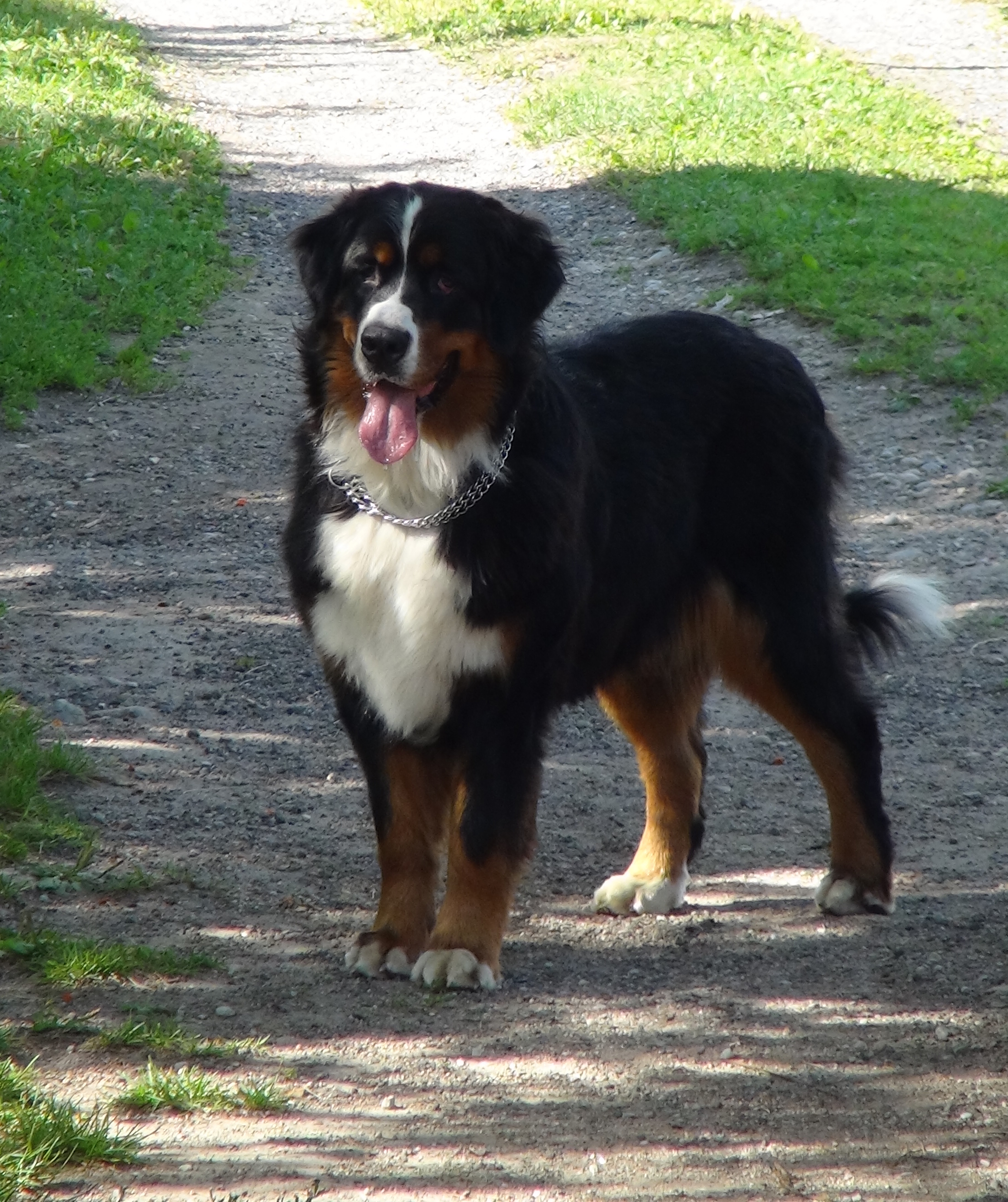The Bernese Mountain Dog is a beloved breed known for its gentle and loyal nature. However, it’s important to understand the potential power behind their bite. This article will delve into the specifics of the Bernese Mountain Dog’s bite force, measured in pounds per square inch (PSI), and explore the factors that contribute to this impressive statistic.
The Exact Bernese Mountain Dog Bite Force PSI

The Bernese Mountain Dog has a bite force that falls within the range of 200 to 400 pounds per square inch (PSI). This bite force is considered ordinary compared to other dog breeds, but it is still quite powerful and can cause bite wounds if not properly managed.
Factors Influencing Bernese Mountain Dog Bite Force

Several factors contribute to the bite force of a Bernese Mountain Dog, including:
-
Jaw Structure: The Bernese Mountain Dog’s jaw structure, with its strong muscles and large teeth, plays a significant role in its bite force. The breed’s powerful jaws allow them to exert a considerable amount of pressure when biting.
-
Body Size and Weight: As a large breed, Bernese Mountain Dogs typically weigh between 70 to 115 pounds. Their substantial size and weight contribute to their overall bite force, as they can generate more force behind their bites.
-
Breed Characteristics: Bernese Mountain Dogs were originally bred as working dogs, used for tasks such as pulling carts and guarding livestock. This heritage has contributed to the breed’s natural strength and bite force.
-
Individual Variation: Like any breed, there can be individual variations in the bite force of Bernese Mountain Dogs. Factors such as genetics, training, and socialization can all play a role in the development of a dog’s bite force.
Comparing Bernese Mountain Dog Bite Force to Other Breeds
When comparing the bite force of Bernese Mountain Dogs to other dog breeds, it’s important to note that the range of 200 to 400 PSI is considered average. Here’s a comparison of the bite force of Bernese Mountain Dogs to some other popular breeds:
| Breed | Bite Force (PSI) |
|---|---|
| German Shepherd | 238 |
| Rottweiler | 328 |
| Pit Bull | 235 |
| Labrador Retriever | 228 |
| Bernese Mountain Dog | 200 – 400 |
As you can see, the Bernese Mountain Dog’s bite force falls within the middle range when compared to other breeds. While it’s not the most powerful, it’s still a significant amount of force that requires proper training and management.
Responsible Ownership and Training
Given the Bernese Mountain Dog’s potential for a powerful bite, it’s crucial for owners to prioritize responsible ownership and training. Here are some key considerations:
-
Early Socialization: Exposing Bernese Mountain Dog puppies to a variety of people, animals, and environments from a young age can help them develop a well-rounded and confident temperament. This can reduce the likelihood of aggressive or biting behaviors.
-
Obedience Training: Consistent and positive-reinforcement-based obedience training is essential for Bernese Mountain Dogs. This helps them learn appropriate behaviors and respond to commands, which can be crucial in preventing bite incidents.
-
Supervision and Management: Bernese Mountain Dogs should always be supervised when interacting with children or other animals. Owners should also be mindful of the breed’s size and strength, and take appropriate precautions to prevent any potential bite incidents.
-
Bite Inhibition: Teaching Bernese Mountain Dog puppies bite inhibition, or the ability to control the force of their bites, is an important aspect of training. This can help ensure that even if a bite occurs, it is less likely to cause serious injury.
-
Veterinary Checkups: Regular veterinary checkups can help identify any underlying medical conditions that may contribute to aggressive or biting behaviors in Bernese Mountain Dogs.
Addressing Biting Behavior
In the event that a Bernese Mountain Dog does exhibit biting behavior, it’s crucial to address the issue promptly and effectively. Here are some steps to consider:
-
Identify the Trigger: Observe the dog’s behavior and try to identify the specific situations or stimuli that may be triggering the biting behavior. This can help you develop a targeted training plan.
-
Consult a Professional: Seek the guidance of a qualified animal behaviorist or certified dog trainer who specializes in addressing biting issues. They can provide personalized advice and training techniques to help modify the dog’s behavior.
-
Reinforce Positive Behaviors: Reward and praise your Bernese Mountain Dog when they exhibit desirable behaviors, such as responding to commands or interacting calmly with people and other animals. This positive reinforcement can help reinforce the behaviors you want to see.
-
Avoid Punishment: Avoid using punishment-based methods, as they can often exacerbate biting behavior and damage the bond between the dog and the owner. Instead, focus on positive reinforcement and gradual desensitization.
-
Manage the Environment: Ensure that your Bernese Mountain Dog is in a safe and controlled environment, with clear boundaries and supervision, to prevent any potential bite incidents.
Conclusion
The Bernese Mountain Dog’s bite force, ranging from 200 to 400 PSI, is a testament to the breed’s strength and power. While this bite force is considered average compared to other dog breeds, it’s still a significant amount of force that requires responsible ownership and proper training.
By understanding the factors that contribute to the Bernese Mountain Dog’s bite force, and by prioritizing early socialization, obedience training, and proactive management, owners can help ensure that their beloved companions remain safe and well-behaved members of the family.
Remember, with the right approach and dedication, Bernese Mountain Dogs can be wonderful, loving companions that bring joy and happiness to their owners’ lives.
Reference:
– Bite Force Comparison of Different Dog Breeds
– Bernese Mountain Dog Temperament and Personality
– Bite Inhibition Training for Dogs

Sarah Johnson
Sarah Johnson is a devoted Bernese Mountain Dog enthusiast and regular contributor to Bernese Mountain Dog Pro. With over a decade of experience in raising and training Berners, Sarah brings practical knowledge and passion to her writing. Sarah lives in Colorado with her two Berners, Max and Bella.